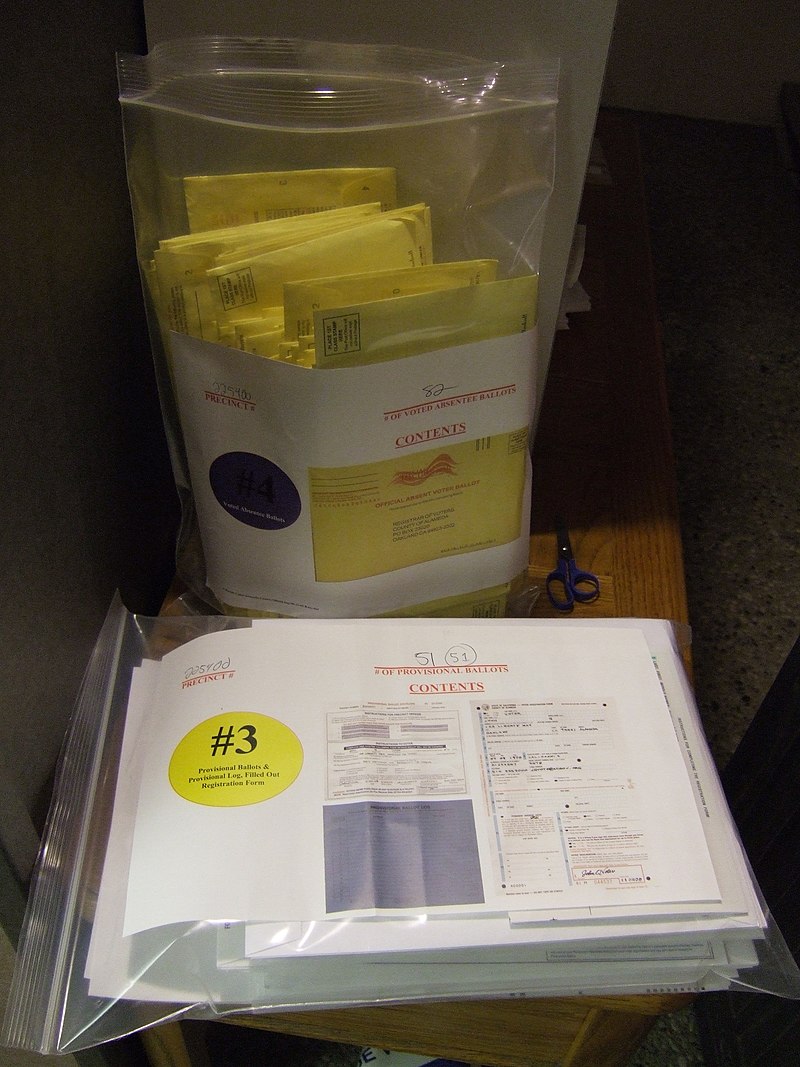On Nov. 10, 2025, the U.S. Supreme Court agreed to hear Watson v. Republican National Committee, a case challenging the legality of a Mississippi law permitting absentee ballots postmarked by Election Day to be counted if they are received up to five business days after the election.
Mississippi is one of 15 states that allow absentee/mail-in ballots postmarked by Election Day to be counted if they arrive within a set period of time after the election. The state passed a law allowing for a five-day grace period in 2020.
Twenty-nine states, including Mississippi, also allow at least some absentee/mail-in ballots from military or overseas voters to be counted if they arrive after Election Day.
The Republican National Committee, the Mississippi Republican Party, the Libertarian Party of Mississippi, George County Election Commissioner Matthew Lamb, and former Hinds County Republican Party Chair James Perry challenged the law in 2024.
Opponents argue that federal law establishes a uniform, national Election Day for congressional and presidential elections that would preempt Mississippi’s law.
“Mississippi contravenes those federal laws by counting mail-in ballots that are received up to five business days after Election Day,” the plaintiffs said in their original lawsuit. “Mississippi effectively extends Mississippi’s federal election past the Election Day established by Congress. The result of Mississippi’s violation of federal law is that timely, valid ballots are diluted by untimely, invalid ballots, which violates the rights of candidates, campaigns, and voters under federal law.”
The U.S. District Court for the Southern District of Mississippi ruled in favor of the state in July 2024. Plaintiffs appealed to the U.S. Court of Appeals for the Fifth Circuit, where a three-judge panel in October 2024 ruled that federal law preempted Mississippi's statute and sent the case back to the district court.
“Federal law requires voters to take timely steps to vote by Election Day,” Fifth Circuit Judge Andrew Oldham wrote in the unanimous ruling. “And federal law does not permit the State of Mississippi to extend the period for voting by one day, five days, or 100 days.”
After the full Fifth Circuit declined to rehear the case, Mississippi Secretary of State Michael Watson (R) appealed the ruling to the U.S. Supreme Court.
Backers of the law argue that the Fifth Circuit’s ruling runs counter to past precedent and that an absentee/mail-in ballot need only be mailed before Election Day to be considered valid.
“The [Fifth Circuit] court struck down a state law regulating elections—a matter the Constitution allows States to address—based on stark errors of law,” Mississippi Solicitor General Scott G. Stewart, who is representing Watson, wrote in a petition asking the Supreme Court to take the case. “That decision will have sweeping ramifications. The rule the Fifth Circuit adopted would require scrapping election laws in most States.”
In March, President Donald Trump (R) issued an executive order regarding elections that included an instruction to the U.S. Attorney General to take action to prevent states from counting ballots that arrive after Election Day. The order, which referenced the Fifth Circuit’s ruling, has since been challenged in court.
In 2025, three states — Kansas, North Dakota, and Utah — have passed laws requiring absentee/mail-in ballots to be received by the close of polls on Election Day. Previously, Kansas required ballots to be received by the end of business on the third day following the election, Utah required ballots to be received by noon on the day of the canvass, and North Dakota did not have a specific deadline in statute.
On Nov. 19, the Ohio House of Representatives voted 58-29 in favor of SB 293, which requires absentee ballots to be received by local boards of elections by the close of polls on Election Day. The Ohio Senate passed the bill 23-10, sending it to Gov. Mike DeWine (R). Currently, Ohio counts ballots if they arrive within four days after the election and were postmarked by Election Day.
The Columbus Dispatch’s Haley BeMiller reported that the U.S. Department of Justice wrote in a September letter to Ohio Attorney General Dave Yost (R) "that Ohio law runs afoul of federal policy. The letter urged state officials to change the absentee ballot deadline and 'avoid costly litigation in federal court.'"
As of Nov. 18, 2025, Watson v. Republican National Committee was one of 45 cases the court has agreed to hear during its October 2025 term. It is the fourth voting or elections-related case that the court has agreed to hear during the current term.



